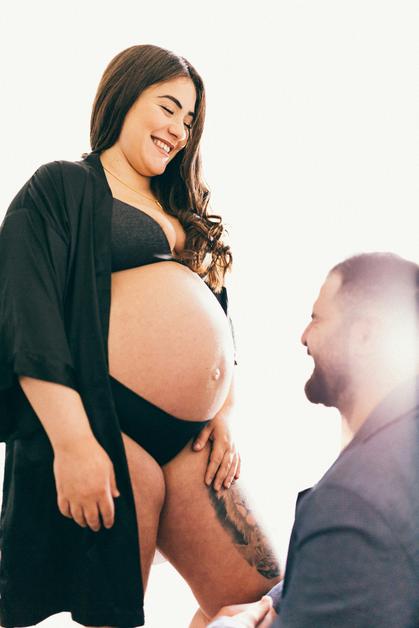Wondering exactly when to announce pregnancy (12 weeks vs 12 gestational weeks)? The anticipation, mixed with a smattering of anxiety and gentle hope, marks the early days of expecting a child. For many, balancing cultural customs, scientific milestones, and personal comfort shapes this delicate decision. Miscarriage risk, emotional resilience, workplace realities—the puzzle is complex, yet parents crave clarity. Should you wait for a reassuring ultrasound before sharing? Should you confide early if nausea leaves you weak or workplace safety is at stake? The question returns, insistent and deeply personal: “When is the right moment to make this joyful news known?”
Parents everywhere tread this razor-thin line—navigating privacy, emotional support, and medical checkpoints. Is there a “perfect” answer when it comes to when to announce pregnancy (12 weeks vs 12 gestational weeks)? Not really. But with science, tradition, and compassion as guides, finding your timing can feel a bit less daunting. Here, the essential facts converge: what 12 weeks truly means, how gestational age is measured, cultural and anatomical milestones, and practical tips for phrasing the big news.
What Do 12 Weeks and 12 Gestational Weeks Truly Mean?
Questions swirl: when doctors say “12 weeks,” do they mean from the missed period, or from the moment of conception? Let’s clear the fog. In medical settings, “gestational age” (often abbreviated as GA) counts from the very first day of your last menstrual period (LMP)—not conception itself. Picture it as a clock starting to tick before pregnancy is even confirmed. So, 12 weeks gestational age almost always means about 10 weeks since the sperm met the egg.
- Gestational Age (GA): Measures time since the last menstrual period. It’s how most ultrasounds, prenatal appointments, and due dates are calculated.
- Conception Age: The real “time since fertilization,” running roughly two weeks behind GA.
When people discuss “12 weeks” or “12 gestational weeks,” they are usually talking about the same time frame. In practical speech, families, friends, and even healthcare providers use these interchangeably, but adding “gestational” makes it medically accurate. Curious about local terminology? You might spot “weeks of amenorrhea” (absence of periods), which aligns with GA.
Why Do Many Wait Until About 12 Weeks for the Announcement?
The first trimester, those early 12–13 weeks, is a stormy sea of emotions, doctor visits, and, for some, morning sickness that seems relentless. But it’s also the window when nature handles its own delicate sorting—most pregnancy losses (miscarriages) occur before this milestone. As weeks pass, each scan and heartbeat check offers comfort.
Here’s why many parents pause until the 12-week juncture:
- Miscarriage Risk Drops: The greatest risk of early loss is in the first trimester; crossing this threshold often feels reassuring.
- First Ultrasound Milestone: Around 11–13 weeks, the first crucial ultrasound typically occurs. Here, parents might glimpse baby’s outline or hear that unmistakable, rapid heartbeat—tangible proof of new life.
- Emotional Readiness: Sharing news after the uncertainty of early weeks can carry more genuine joy, less anxiety.
Cultural practices play their part, too. In some families, the three-month mark holds symbolic value, balancing celebration with prudence. Does tradition matter to you? Honour it—but always prioritise your health and comfort.
Immediate Support vs Waiting: Factors That Shape Your Timing
Emotions may vacillate rapidly—one moment, a surge of excitement; the next, a curl of fear. The need for support often dictates the timing. If fatigue and queasiness make daily life challenging, telling a trusted person early can provide crucial relief. For others, secrecy is a shield, lending space for private anticipation. Both approaches are entirely valid.
Consider these questions as you weigh your decision:
- Do you need instant emotional or physical help? Telling a partner or close friend can bring relief.
- Is your workplace exposing you to chemicals, heavy loads, or radiation? Earlier disclosure can help in negotiating safer duties.
- Are you seeking medical reassurance before going public? Waiting until after a scan or the end of the first trimester may feel grounding.
No single path suits everyone—choose the one that matches your situation.
How to Announce: Practical Scripts and Staged Sharing
The act of sharing the news can feel just as daunting as the decision of when. How to word it? Whom to allow into your inner circle early on? A staged approach helps maintain privacy and dignity:
Order of Announcement:
- Partner
- Immediate Family (parents, siblings)
- Close Friends
- Wider Circle & Workplace (if necessary)
Sample wording:
For close ones:
- “I’m 12 weeks pregnant (12 weeks gestational age)—we’ve just done our scan. Your support means a lot.”
For work:
- “Hi [Name], just to share—I’m about 12 weeks along. Let’s discuss temporary adjustments if needed.”
Public or team announcement:
- “Pleased to share that I’m expecting, around 12 weeks. I’ll coordinate any work changes with [manager].”
Social media? A gentle start might be, “Sharing with our closest—please keep it private while early checks finish.”
Navigating Medical Milestones and Reassurance Points
Medical science intertwines deeply with the choice of when to announce pregnancy (12 weeks vs 12 gestational weeks). Each checkpoint along the way adds clarity to the mysterious unfolding inside:
- Fetal Heartbeat Detection: Usually confirmed by ultrasound in the first trimester. A regular, strong rhythm eases many anxieties.
- First-Trimester Ultrasound: Typically by 11–13 weeks of gestational age, this scan establishes due date accuracy, checks for twins, and looks for early growth milestones.
- Anatomy Scan: Conducted later (around 18–22 weeks) to scan baby’s organs and body structure. Some families opt to wait until this scan to go public.
Statistics support these waits—after a baby’s heartbeat is confirmed, miscarriage risk drops further, bringing additional comfort.
Work, Safety, and Legal Considerations
Jobs vary, but some bring unique challenges for pregnant parents—exposure to hazardous substances, long hours on your feet, or strenuous duties can all prompt an earlier announcement. Legally, there’s no demand to inform your employer before 14 weeks of pregnancy, though sharing earlier protects your safety and opens discussions for accommodations.
- HR communication: Focus on logistics and needs, not medical details. Example: “Currently about 12 weeks gestational age; please advise on leave and arrangements.”
- Privacy preference: Request confidentiality from your manager until you’re ready to go public.
Social Media and Setting Boundaries
The digital age complicates announcement timing. Posting publicly brings a flood of attention, much of it joyous but sometimes overwhelming. Consider “soft launching” the news—informing a small, private circle first, then posting wider after crucial milestones.
- Ask those you trust not to forward the news or share widely.
- Use private message groups or stories with close friends before a permanent post.
Special Scenarios: Fertility Treatments, Loss, Multiple Pregnancies
Certain journeys require unique sensitivity:
- After Loss or Fertility Treatments: Announce first to a small, supportive circle. Wait for key scans before going broader, if preferred.
- High-Risk or Multiple Pregnancies: With more frequent medical checks, parents may choose a more staggered approach, aligning disclosure with reassurance.
Clarity in Communication: Avoiding Date Confusion
Misunderstandings about weeks can tangle conversations. If precise, simply clarify:
“I’m 12 weeks pregnant by gestational age, which is counted from my last period.”
And if a scan changes your due date, use the latest estimate consistently in all discussions.
Announcement Ideas: Make it Memorable
Longing for creativity? Surprise loved ones with a gift-wrapped ultrasound photo, a note inside a tiny pair of booties, or a family dinner announcement.
A simple caption on social media—“12 weeks—our hearts beat for two”—captures both the science and the sentiment.
Setting Boundaries and Coping with Outcomes
Emotions—yours and others’—may run high. Prepare gentle responses:
- For curiosity: “Thanks for your excitement; we’ll update everyone together.”
- For intrusive questions: “We prefer to keep details private for now.”
If the outcome changes, consider asking a trusted family member to update others, sparing yourself repeated conversations. It’s always wise to decide in advance whom you’d want to notify, and how, if things shift.
Key Takeaways
- The phrase when to announce pregnancy (12 weeks vs 12 gestational weeks) reflects a blend of biological milestones and individual comfort.
- 12 weeks gestational age starts from the last menstrual period, not from conception—a distinction relevant in all medical discussions.
- Risk of early pregnancy loss falls significantly after the first trimester and a confirmed heartbeat.
- Announcement timing should reflect your health, emotional needs, workplace logistics, and personal comfort—not a singular formula.
- For job safety or challenging duties, earlier notification may help secure needed adjustments without pressure to go public prematurely.
- There is no universal rulebook—trust your instincts, consult doctors, and set your own pace for sharing.
- Explore additional support, expert advice, and personalised child health questionnaires with the Heloa app—a free resource for families navigating pregnancy and beyond.
Questions Parents Ask
Do I need to update legal documents (wills, guardianship, healthcare proxies) when I announce a pregnancy?
While immediate action isn’t required for everyone, checking basics can bring peace of mind. Name a child guardian in your will or estate plan if that makes sense for your family. Review life insurance, add or update beneficiaries, and identify who could make medical decisions if needed. For those working with a lawyer or financial adviser, a short update won’t take much time. Many families start with essentials early, then update after the birth.
If I told people early and later have a miscarriage, how do I manage reactions and possible regret?
Allow yourself any feeling—sadness, regret, even relief. Decide who you want to inform about the loss, using clear but brief wording like: “We had a loss and are taking some time. Thank you for understanding and kindly respecting our privacy.” If information is already public, you might wish to archive social media posts or make a request for privacy. Share the load: a close friend or family member can update others. Emotional support from doctors, counsellors, or peer groups might provide comfort if you wish.
How should I announce on social media—any platform-specific tips or privacy settings to consider?
Each platform has its own etiquette. Facebook allows “friends-only” posts or closed groups; Instagram’s “Close Friends” list is suited for a low-profile story, while WhatsApp groups feel intimate. LinkedIn? Keep it simple and professional, with no medical details. Draft captions before posting, decide about comments, and request friends to hold off on sharing if you need privacy. For many, a larger announcement follows a 12-week scan, but timing should always reflect your comfort.
What’s the difference between 12 weeks and 12 gestational weeks—why does it matter?
Both mean the same in a medical context—12 weeks from the last period (gestational age). Sometimes, conception age lags by about two weeks. Clarifying “gestational age” helps keep everyone on the same page for scans, appointments, and due dates.
Is it normal to wait until after key medical checks to announce pregnancy?
Absolutely, many parents wait for the 12–13 week scan or even 20-week anatomy scan for confidence. The decision depends on your health, support needs, and family traditions.
How to handle workplace announcements and coordination?
Notify your manager or human resources as comfortable—earlier if you need adjustments for health or safety. Clearly request privacy if you’re not ready to share with the team, and stick to the logistics.
For more detailed, personalised advice and access to free child health assessments, download the Heloa app—always at your service for the parenting journey.

Further reading :









